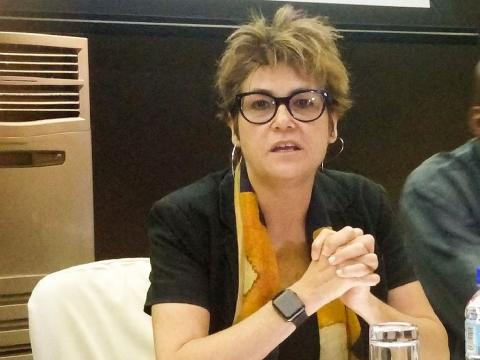By Francis H. Murray
The Board of Executive Directors at the World Bank has approved a $50 million grant from the International Development Association (IDA) to improve access to electricity supply across Sierra Leone.
The grant, authorities say, will be co-financed with a $2.1 million grant by the Japan Policy and Human Resources Development Fund and will enhance institutional capacity and commercial management of the sector.
A press statement issued by the global financial institution on Friday says the project will support the country’s post-COVID-19 economic recovery by bringing electricity supply to households, businesses, health clinics as well as schools, which are considered critical to the recovery process.
The project, titled “The enhancing of Sierra Leone energy access” is aligned with the outcomes of the multi-stakeholder energy sector roundtable held in October 2019 and the Electricity Distribution and Supply Authority turnaround roundtable in November 2019 where the government and donor partners were in consensus on the sector’s priorities.
It is also expected to support the replacement of costly fuel generation plants with low cost power, which will free up scarce fiscal resources for other pressing socioeconomic needs.
World Bank Country Manager for Sierra Leone, Gayle Martin is quoted in the press statement as saying that because access to electricity is a critical ingredient to development, more efforts are needed to improve the sector’s efficiency in light of effective service delivery.
He says the project will help solve infrastructural deficiencies thereby promoting sustainable development in other key sectors.
“Improving access to electricity in Sierra Leone is a critical development accelerator. The project will help address the country’s key infrastructure deficits, which is one of the fundamental elements for promoting sustainable growth and job creation in the COVID-19 recovery,’’ the statement reads.
It goes on: “more efforts are needed to improve the sector’s efficiency as well as its overall financial sustainability. In addition to financing, the World Bank is also supporting a robust analytic and knowledge agenda.’’
This project, according to analysis, is expected to provide electricity to approximately 276,000 people and about 700 health facilities and schools and help cut an average of 15,135 tons greenhouse gas emissions per year.
According to the Bank, with only 23% of Sierra Leoneans having access to electricity, which is below the Sub-Saharan average of 30%, the project will also create a competitive market, job opportunities and reduce poverty.
“The gap in infrastructure is not only impacting people’s welfare and ability to access services, it is also severely impeding on competitiveness, job creation and poverty reduction,’’ the release further stated.
It adds that amidst private companies mentioning inadequate electricity provision as a major cause for high costs, disrupted production and reduced profitability, the project will help to leverage the gap and further enhance far more competition among private sector players.
Copyright © 2021 Politico Online








